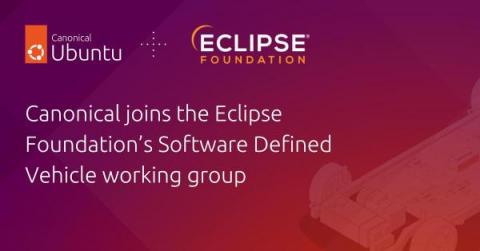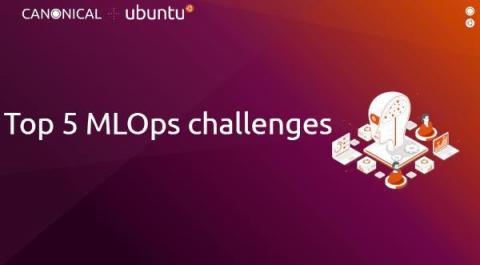Operations | Monitoring | ITSM | DevOps | Cloud
Canonical
Charmed Kubeflow 1.7 Beta is here. Try it now!
Canonical is happy to announce that Charmed Kubeflow 1.7 is now available in Beta. Kubeflow is a foundational part of the MLOps ecosystem that has been evolving over the years. With Charmed Kubeflow 1.7, users benefit from the ability to run serverless workloads and perform model inference regardless of the machine learning framework they use.
What is real-time Linux? Part III
Welcome to the final post of this three-part series on real-time Linux. As market adoption of real-time computing continues to rise, real-time in the Linux kernel is emerging as a valuable solution on the software side. A real-time Linux kernel on its own, however, will not necessarily make a system real-time. We clarified this point in Part I and listed the common misconceptions and stack components.
Canonical joins the Eclipse Foundation's Software Defined Vehicle working group
Canonical is excited to announce it is now an official member of the Eclipse Software Defined Vehicle Working Group (SDV WG). Eclipse SDV focuses on software-defined vehicles (SDVs) and pushes innovations in automotive-grade solutions using open-source software. By offering an open technology platform, automotive companies can use and integrate open standards and powerful developer experience for their own software development.
Top 5 MLOps challenges
After ChatGPT took off, the AI/ML market suddenly became attractive to everyone. But is it that easy to kickstart a project? More importantly, what do you need to scale an AI initiative? MLOps or machine learning operations is the answer when it comes to automating machine learning workflows.
Introduction to Machine Learning Operations | MLOPs
Setup your own VPN server
Why do we need a VPN server? A VPN (Virtual Private Network) server is a network server that allows users to create a secure and encrypted connection to another network over the internet. Here are some reasons why we need a VPN server.
What is real-time Linux? Part II
Welcome to this three-part mini-series on real-time Linux. In Part I, we set the stage for the remainder of the series by defining a real-time system, and went through common misconceptions. We also covered the broad market applications of a real-time Linux kernel. Several applications across a wide range of use cases and verticals require real-time computing capabilities. Sectors like industrial automation, energy and transportation have strict precision requirements for their systems.
Rethink your Cloud strategy in 2023
Gartner forecasts that worldwide end-user spending on public cloud services will grow 20.7% from $490.3 billion in 2022 to $591.8 billion in 2023. By 2026, the Public Cloud market will double its size today to $1 trillion, also predicted by Gartner. AWS, Microsoft Azure, and Google Cloud all maintained double-digit growth in Q4 2022, especially Google Cloud grew 32% to $7.32 billion. CDN giant Akamai also unveiled Akamai Connected Cloud and New Cloud Computing Services on Feb 14, 2023.
Out with the Old, In with the New
As Mobile World Congress 2023 approaches, the latest technological advances in the telecom industry will take center stage. At the forefront of these advances are the innovations brought about by open-source technologies. At Canonical, we are leading the way in this space, with groundbreaking developments in OpenRAN automation and distributed compute management that outperform our competition.











